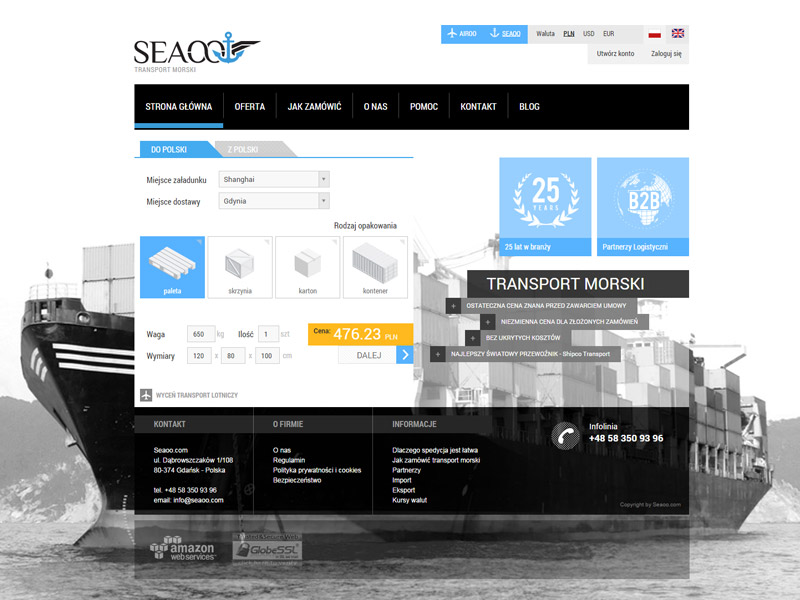The terms of delivery – a choice of an appropriate option – AN IMPORT
I horribly played a wise guy in my last post, and now time to be specific. How to match terms of delivery the most optimally to our needs? First of all, you should answer yourself a question if we are going to take an active part in the shipping process or rather rely on what a market brings.
For more interested in the shipping process I suggest choosing the EXW terms. In such a case we have 100% impact on how an import of our cargo will be carried out. A seller puts out on the ramp in his warehouse and we are to choose a type of the carriage transport (a post, air, sea) and consequently we have a full control over the costs of the consignment. It is us who receive an offer form a carrier and theoretically we maintain a full control over costs of the delivery. I propose the EXW terms to especially important cargos from our point of view to which we would like to be sure in terms of the carriage quality – finally, we by ourselves control a consignment. We decide if want an insurance or for a given batch is unnecessary for us. We decide on the transhipments, repacking – all parameters of the consignment. Of course, it costs. It costs not only money, but also a real time which is sacrificed to supervise all of that.
That is why I always propose people who have a little less time a less invasive delivery term – FOB. It leaves us a control over a main consignment route, we have control over it, we decide if we want to insure or not, but we are not involved in establishing a readiness deadline, a date of the transport in the place of shipping and similar stressful subjects. Those we pass on a shipper. At last he knows the best his own local transport market, his own capacities, know a readiness deadline, he will manage to come to understanding in a local language with a provider of the transport services on his side. We are only to choose a consolidation warehouse (for the LCL), a port or air terminal to which a shipper has to deliver our goods.
For cargos with already “established” carriage route and ARE NOT THE LCL CARGO one may be tempted to apply terms from a C group CPT / CIF. In the case of those terms, a shipper is responsible for delivering us goods and making payment for a freight, and sometimes even for an insurance. By it we deprive ourselves a control over the transport process, but as I have written in the introduction – it is worth to apply such terms only in the case of the “established” transport procedure which was proved and does not generate additional problems and costs on our side. We are only to organise an import customs clearance (and in consequence paying CP) and a final delivery to our warehouse.
One cannot, for sure, rely on the group C in the case of the consolidated cargos. On the Polish market run a business a few specialised consolidators (Shipco, EcuLine and others), which have at disposal their agents distributed all over the world are able to transport such cargos at the export request.
However, an open secret is that in the final statement of the local costs we not one time pay more than for a cargo with its transport. Why this is so – I will write about it sometime.
We have to discuss the last group – D. In this case we have absolutely no impact on anything, and a shipper not one time will pay for us even a customs duty but unfortunately not VAT. My experience shows that such delivery terms are used between branches of one enterprise. For instance, a Korean parent company sends components for a production to its Polish daughter company and bears all costs connected with this cargo. It looks like that in practice.
My experience shows that people beginning in the import process want to control as many things as possible, but this involvement rate decreases while increases a confidence in the freight forwarder what results in an amount of the realised consignments 
I cordially invite you to a discussion on applying certain terms in appropriate cases 
The next few posts will be a description of the documentation in the transport process – I invite you to read them.




